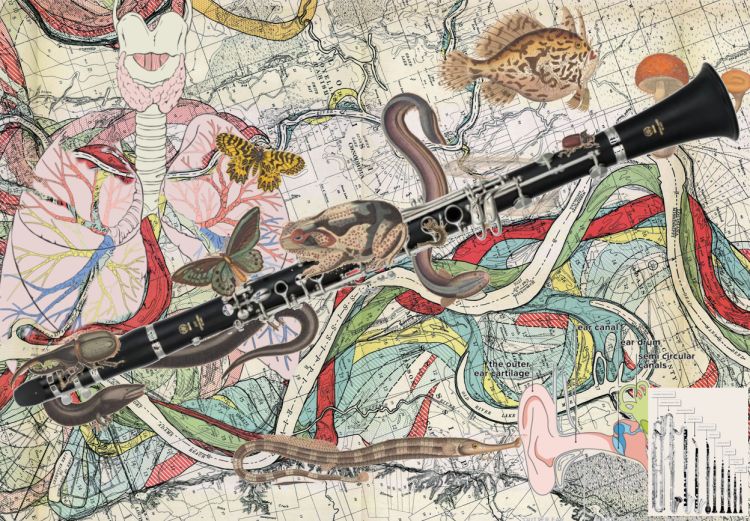The Garden of Forking Paths (Scott McLaughlin)

What kinds of music can we make when we let instruments “do what they want?” The Garden of Forking Paths is a practice research project that reimagines instrumental writing and performing by changing the focus from controlling the instrument to supporting the instrument (to do what IT wants). The impact of my research on clarinet players and other musicians is to provide specific techniques for alternative approaches to mastery and control of their instrument that allows players to respond to the instrument in performance. The impact on composers is to give them notational and conceptual tools that build on ideas of indeterminacy and contingency, and expand multiphonic approaches into more flexible and responsive possibilities.
What the instrument ‘wants’ in this case—its agency—is that it wants to resonate according to its physical structure. If I simply blow into a clarinet and set the reed in vibration, there is a resonance, a pitch, that wants to sound. In standard performance techniques, this is tightly controlled to produce just one focussed pitch that is reliable and predictable. Standard instrumental technique is very good at training the player to reduce the sounding possibilities to one possible path, with any deviations from this path classed as a mistake (mostly). But what happens if I step back from this control and allow other possible paths to emerge? What kind of performance technique can we develop reverses the role of listening from policing the edges of the one known path to instead listening for resonant opportunities, other paths that might emerge if allowed.
The research builds primarily on performance researchers such as Heather Roche and Thomas Bergeron, as well as Experimental Music composers such as Alvin Lucier and Pauline Oliveros. I also worked with Heather and other specialist clarinettists on a range of solo works and a concerto for clarinet and orchestra (broadcast on BBC Radio 3) and commissioned new works from composers to put the project’s insights into practice. This was accompanied by a collaboration with the Royal Northern College of Music where student composers and performers were regularly updated on the research and invited to contribute. This resulted in four additional pieces and involved 11 other clarinettists.
Since the original project finished, we have been writing a book of studies for clarinet to extend the reach of the impact and give it the time it needs for these ideas to permeate. The study book is designed to contain all the insights from the project but written in a way that allows non-specialists to engage with it. I work with composers and performers at both professional and student levels. The music produced on the initial funded project was aimed towards specialist performers and composers who would already be familiar with an extended concept of the clarinet (such as air sounds or multiphonics and other embouchure techniques), or already familiar with non-traditional notations and formal concepts - such as open-ended and non-linear structures, or constrained forms of improvisation or responsive listening.

